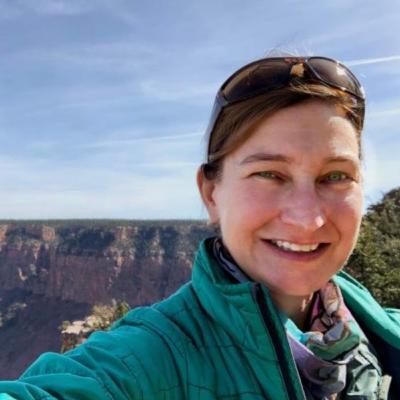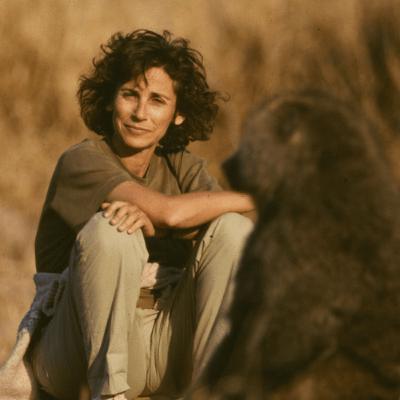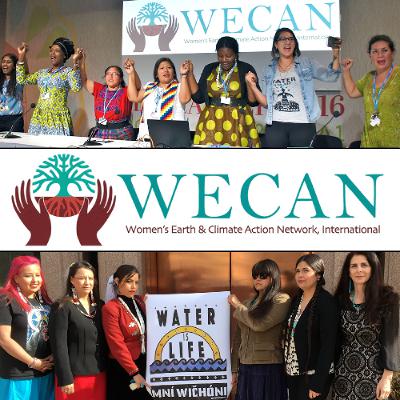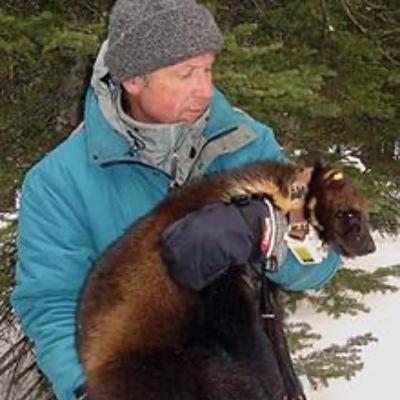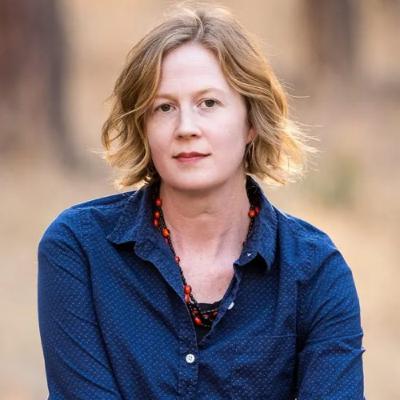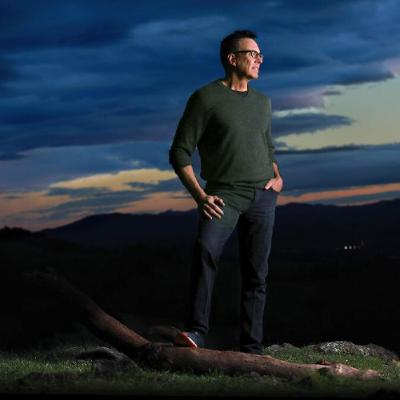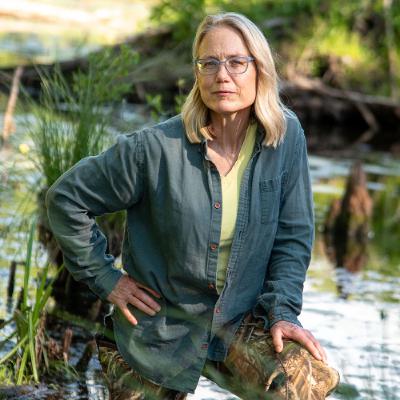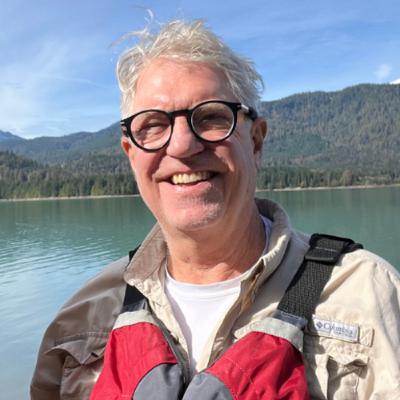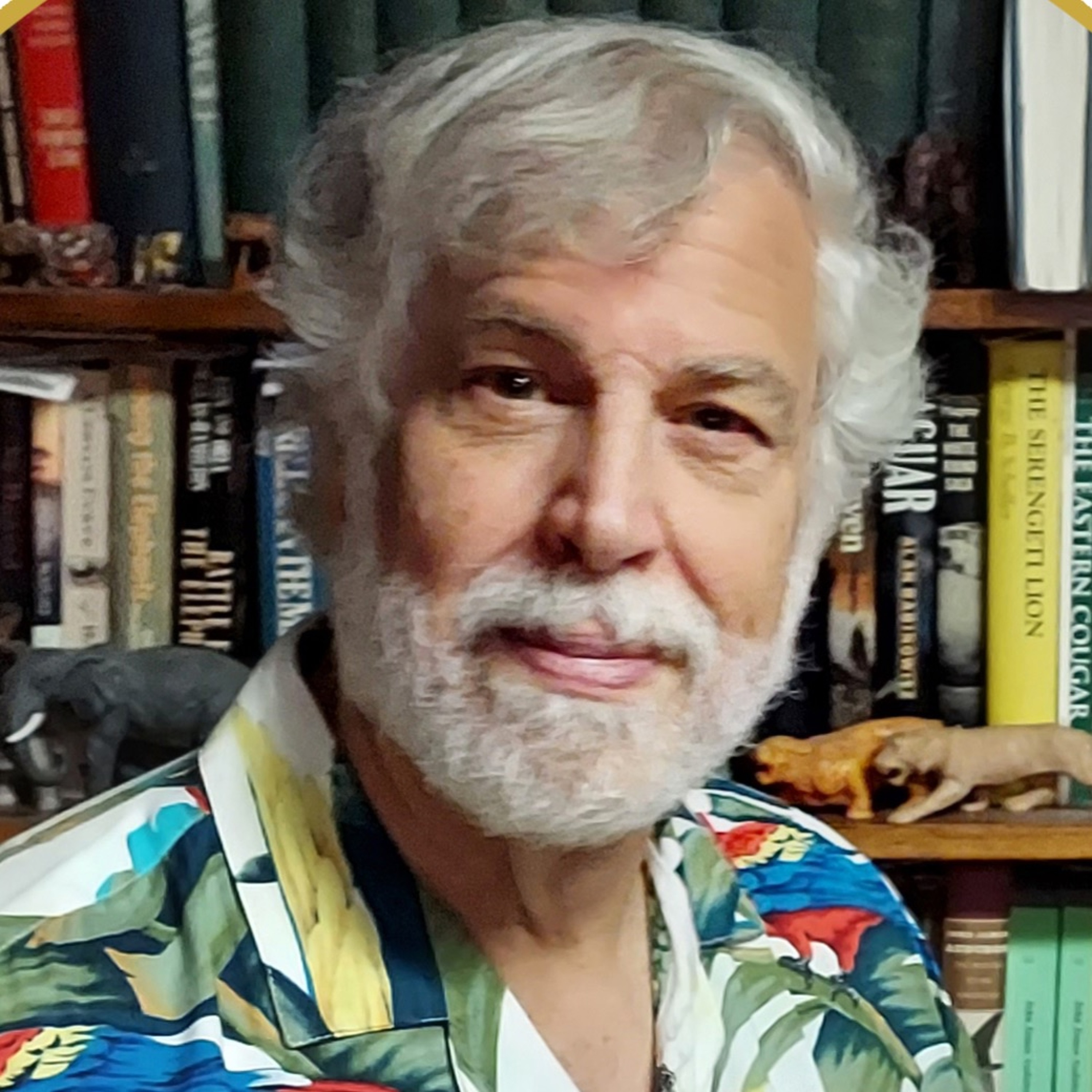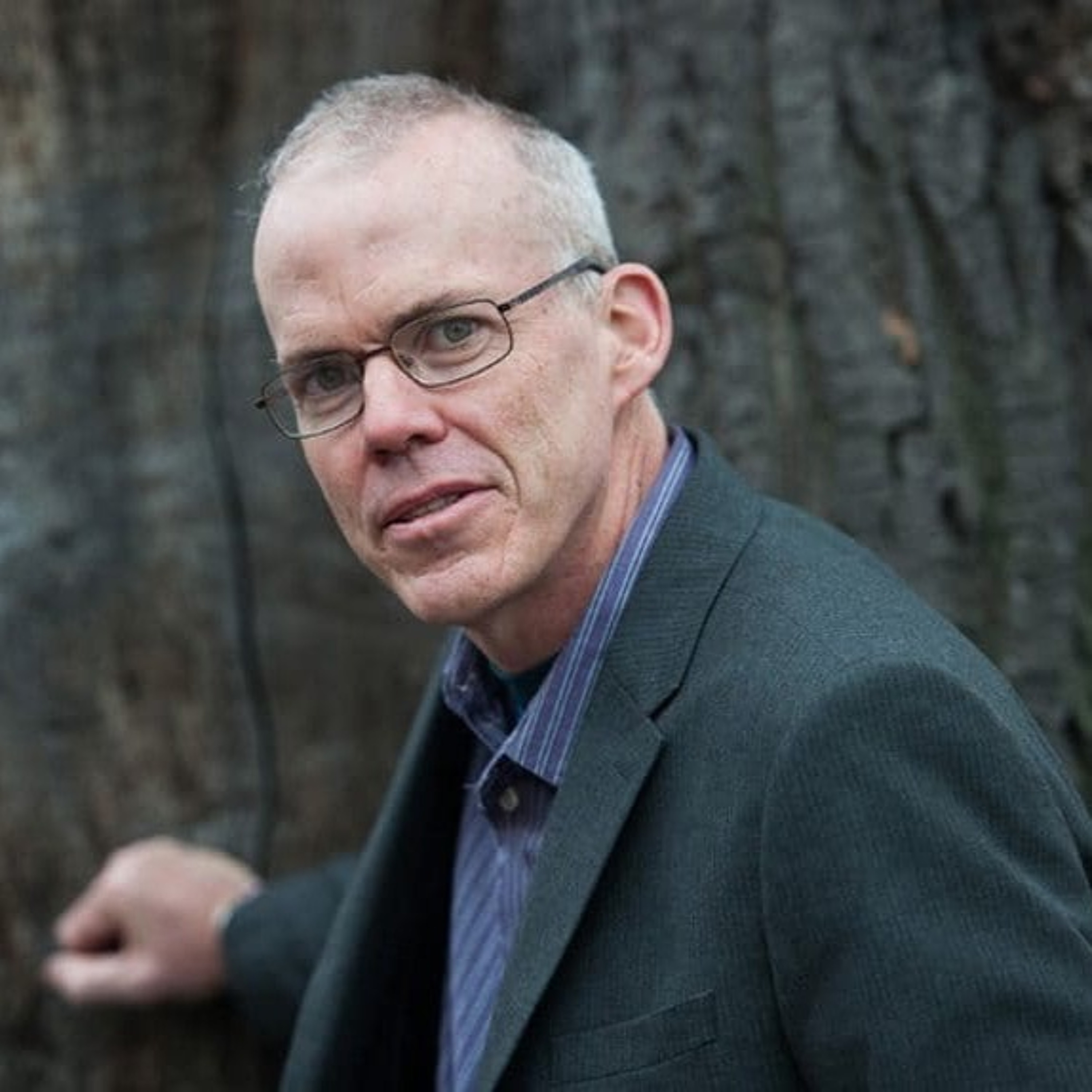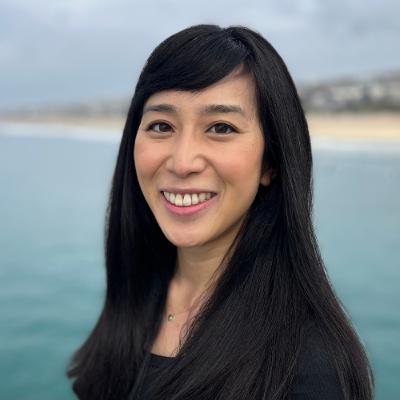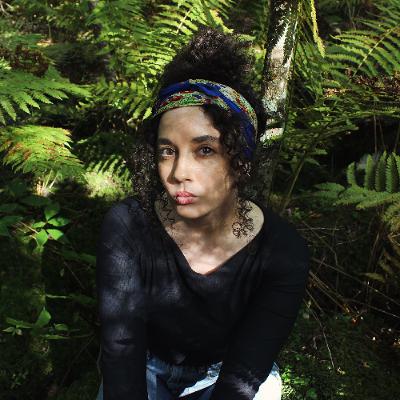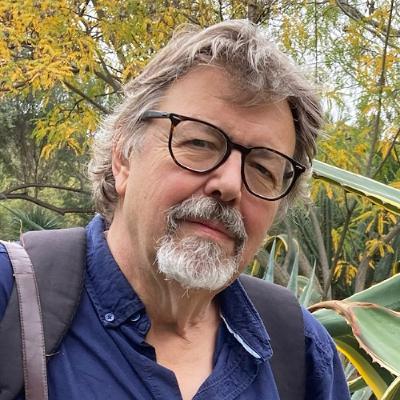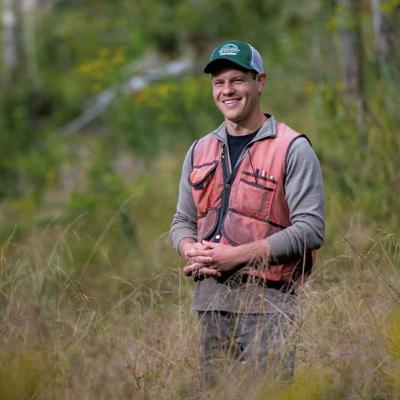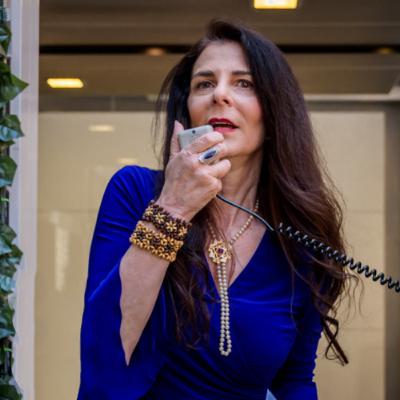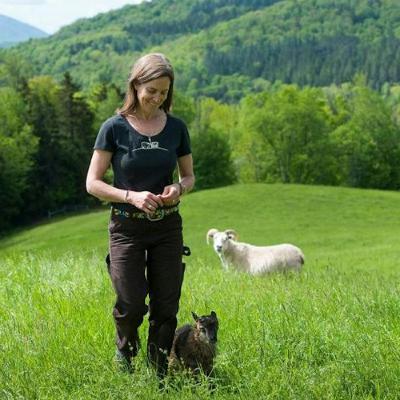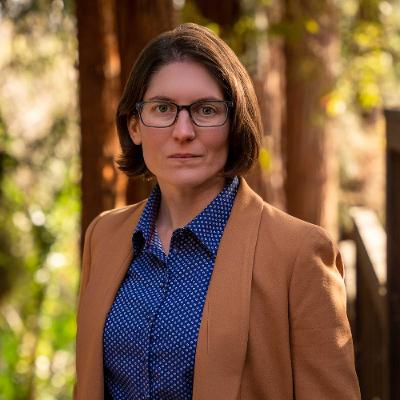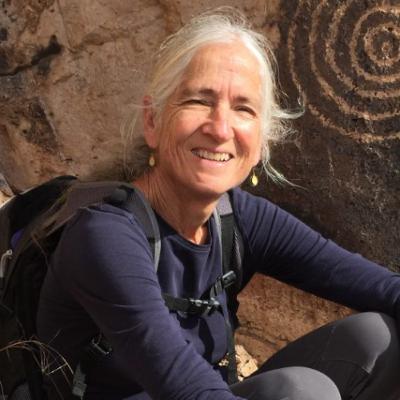Discover Nature Revisited
Nature Revisited

Nature Revisited
Author: Noorden Productions
Subscribed: 137Played: 2,084Subscribe
Share
© All rights reserved
Description
Nature Revisited is a podcast that explores our relationship with the natural world through interviews, stories and discussions that highlight the notion that nature is not a place one goes to, but rather a place one is a part of - that We Are Nature.
267 Episodes
Reverse
Yolonda Youngs is an Associate Professor of Geography and Environmental Studies at CSU San Bernardino and a dedicated scholar, teacher, researcher, and leader. Her scholarly expertise lies within national parks and protected areas, environmental justice, conservation of natural resources, environmental policy, cultural landscapes, and more.
On this episode of Nature Revisited, Yolonda discusses all things National Parks including how they help shape our relationship to nature and the environment, the geographic and environmental principles they represent, their wide variety, the people and programs in place to maintain them, and the challenges they face for the future. [Originally published May 27th 2024, Ep 122]
Yolonda's website: https://yolondayoungs.com/
Listen to Nature Revisited on your favorite podcast apps, on YouTube, or at https://noordenproductions.com
Subscribe on Spotify: https://tinyurl.com/bdz4s9d7
Subscribe on Apple Podcasts: https://tinyurl.com/5n7yx28t
Subscribe on Youtube Podcasts: https://tinyurl.com/bddd55v9
Podlink: https://pod.link/1456657951
Support Nature Revisited https://noordenproductions.com/support
Nature Revisited is produced by Stefan van Norden and Charles Geoghegan. We welcome your comments, questions and suggestions - contact us at https://noordenproductions.com/contact
Shirley C. Strum is a primatologist, conservationist and author. In 1972 she began a study of olive baboons in Kenya that is ongoing and among the longest wildlife field studies on record. Her findings changed scientific and popular perceptions of baboons dominance hierarchies, male aggression, social conduct and troop structure, and the baboon mind.
On this episode of Nature Revisited, Strum recounts her extraordinary fifty-year journey in Kenya alongside baboons, where she uncovered their unexpectedly complex strategies of negotiation, collaboration, and resilience in the face of adversity. From the evolution of social bonds and trust in baboon society to confronting the consequences of human-wildlife conflict, Strum describes how these primates transformed not just her scientific understanding, but also her perspective on life, people, nature, and evolution.
Echoes of Our Origins book: https://www.press.jhu.edu/books/title/53757/echoes-our-origins
Listen to Nature Revisited on your favorite podcast apps, on YouTube, or at https://noordenproductions.com
Subscribe on Spotify: https://tinyurl.com/bdz4s9d7
Subscribe on Apple Podcasts: https://tinyurl.com/5n7yx28t
Subscribe on Youtube Podcasts: https://tinyurl.com/bddd55v9
Podlink: https://pod.link/1456657951
Support Nature Revisited https://noordenproductions.com/support
Nature Revisited is produced by Stefan van Norden and Charles Geoghegan. We welcome your comments, questions and suggestions - contact us at https://noordenproductions.com/contact
Zoë Schlanger is a staff writer at the Atlantic and an award-winning journalist covering science, health and the environment. Her recent book The Light Eaters is a narrative investigation into the new science of plant intelligence and sentience.
On this episode of Nature Revisited, Zoë discusses eye-opening facts about the life of plants and their ingenious biological methods of adaptation and survival. From their ability to communicate, recognize their kin and behave socially, react to sounds, and morph their bodies to blend into their surroundings, plants display an extraordinary system of intelligence that challenges us to rethink the role of plants—and our own place—in the natural world. [Originally published May 14th 2024, Ep 121]
Zoë's website: http://www.zoeschlanger.com/
The Light Eaters book: https://www.amazon.com/Light-Eaters-Unseen-Intelligence-Understanding/dp/0063073854
Listen to Nature Revisited on your favorite podcast apps, on YouTube, or at https://noordenproductions.com
Subscribe on Spotify: https://tinyurl.com/bdz4s9d7
Subscribe on Apple Podcasts: https://tinyurl.com/5n7yx28t
Subscribe on Youtube Podcasts: https://tinyurl.com/bddd55v9
Podlink: https://pod.link/1456657951
Support Nature Revisited https://noordenproductions.com/support
Nature Revisited is produced by Stefan van Norden and Charles Geoghegan. We welcome your comments, questions and suggestions - contact us at https://noordenproductions.com/contact
WECAN (Women's Earth and Climate Action Network) is a women's global movement that focuses on the protection and defense of the earth's diverse ecosystems and communities. Founded by Osprey Orielle Lake, WECAN works nationally and internationally with grassroots and frontier women leaders to build resilient communities and to transition to a clean and just energy future.
Earlier this summer, WECAN sponsored the Global Women's Assembly for Climate Change to address solutions for the protection and defense of human rights and the rights of nature. On this episode of Nature Revisited we share some of the highlights of the assembly.
WECAN website: https://www.wecaninternational.org/
Listen to Nature Revisited on your favorite podcast apps, on YouTube, or at https://noordenproductions.com
Subscribe on Spotify: https://tinyurl.com/bdz4s9d7
Subscribe on Apple Podcasts: https://tinyurl.com/5n7yx28t
Subscribe on Youtube Podcasts: https://tinyurl.com/bddd55v9
Podlink: https://pod.link/1456657951
Support Nature Revisited https://noordenproductions.com/support
Nature Revisited is produced by Stefan van Norden and Charles Geoghegan. We welcome your comments, questions and suggestions - contact us at https://noordenproductions.com/contact
Douglas H. Chadwick is an American wildlife biologist, author, photographer and frequent National Geographic contributor. He is the author of 14 books including The Wolverine Way and more than 200 articles on wildlife and wild places.
On this episode of Nature Revisited, Douglas talks about his experiences with wolverines and the Glacier Wolverine Project, a 5-year study to uncover key missing information about the wolverine's habitat, social structure and mating habits. From dealing with blizzards, grizzlies, sheer mountain walls, and other daily challenges to survival, he and a team of volunteers tracked this elusive species to better understand it and the forces that threaten its future. [Originally published April 30th 2024, Ep 120]
The Wolverine Way book: https://www.amazon.com/Wolverine-Way-Douglas-H-Chadwick/dp/0980122740
Listen to Nature Revisited on your favorite podcast apps, on YouTube, or at https://noordenproductions.com
Subscribe on Spotify: https://tinyurl.com/bdz4s9d7
Subscribe on Apple Podcasts: https://tinyurl.com/5n7yx28t
Subscribe on Youtube Podcasts: https://tinyurl.com/bddd55v9
Podlink: https://pod.link/1456657951
Support Nature Revisited https://noordenproductions.com/support
Nature Revisited is produced by Stefan van Norden and Charles Geoghegan. We welcome your comments, questions and suggestions - contact us at https://noordenproductions.com/contact
Emma Marris is an American non-fiction writer, former journalist for Nature, and has written for National Geographic, Outside, Wired, the Atlantic, and the New York Times. Marris proposes a unified ethical approach that balances the protection of biodiversity with respect for the welfare and autonomy of nonhuman animals.
On this episode of Nature Revisited, Marris confronts the notion of 'wildness' and the ethical challenges presented in imagining our appropriate place in the world. Protecting wild animals and preserving the environment are two ideals that are seemingly compatible when in fact, there exists a space of underexamined and unresolved tension: wildness itself. Are any animals truly wild on a planet that humans have so thoroughly changed?
Emma's website: https://emmamarris.com
Wild Souls book: https://emmamarris.com/books/wild-souls-freedom-and-flourishing-in-the-non-human-world/
Listen to Nature Revisited on your favorite podcast apps, on YouTube, or at https://noordenproductions.com
Subscribe on Spotify: https://tinyurl.com/bdz4s9d7
Subscribe on Apple Podcasts: https://tinyurl.com/5n7yx28t
Subscribe on Youtube Podcasts: https://tinyurl.com/bddd55v9
Podlink: https://pod.link/1456657951
Support Nature Revisited https://noordenproductions.com/support
Nature Revisited is produced by Stefan van Norden and Charles Geoghegan. We welcome your comments, questions and suggestions - contact us at https://noordenproductions.com/contact
Greg Sarris is an author, professor, and is the Chairman of the Federated Indians of Graton Rancheria and the current Chair of the Board of Trustees of the Smithsonian's National Museum of the American Indian.
On this episode of Nature Revisited, Greg discusses his latest work, The Forgetters, a richly beautiful story cycle about remembering our shared histories and repairing the world. Recounting his early years, to discovering his native american heritage, Greg explains how stories and language are what makes us human, and how the lessons contained in the the stories of our indigenous ancestors contain the blueprints for a survivable future through a reconnection with nature and each other. [Originally published April 16th 2024, Ep 119]
Greg's website: https://greg-sarris.com/
Listen to Nature Revisited on your favorite podcast apps, on YouTube, or at https://noordenproductions.com
Subscribe on Spotify: https://tinyurl.com/bdz4s9d7
Subscribe on Apple Podcasts: https://tinyurl.com/5n7yx28t
Subscribe on Youtube Podcasts: https://tinyurl.com/bddd55v9
Podlink: https://pod.link/1456657951
Support Nature Revisited https://noordenproductions.com/support
Nature Revisited is produced by Stefan van Norden and Charles Geoghegan. We welcome your comments, questions and suggestions - contact us at https://noordenproductions.com/contact
Jason Allen-Paisant is an award-winning Jamaican poet, writer and academic, based in the UK. His latest work The Possibility of Tenderness is a people’s history of the land, a family saga, and a personal history told through the lens of the 'grung' and plants.
On this episode of Nature Revisited, Allen-Paisant recalls his upbringing in rural Jamaica, the plants, people and farmers of his native district, Coffee Grove, and his eventual migration to the UK. He describes how his transformative personal journey of self-actualization in a new country and his inevitable revisiting of the village of his childhood would become the inspiration for The Possibility of Tenderness as a tale of land, environment, the world of plants, and what a rural village can teach us about leisure, land ownership and reclamation today.
Jason's website: https://jasonallenpaisant.com/
His book: https://milkweed.org/book/the-possibility-of-tenderness
Listen to Nature Revisited on your favorite podcast apps, on YouTube, or at https://noordenproductions.com
Subscribe on Spotify: https://tinyurl.com/bdz4s9d7
Subscribe on Apple Podcasts: https://tinyurl.com/5n7yx28t
Subscribe on Youtube Podcasts: https://tinyurl.com/bddd55v9
Podlink: https://pod.link/1456657951
Support Nature Revisited https://noordenproductions.com/support
Nature Revisited is produced by Stefan van Norden and Charles Geoghegan. We welcome your comments, questions and suggestions - contact us at https://noordenproductions.com/contact
Leila Philip is an American writer, poet and educator. She is the author of numerous award-winning books of nonfiction, as well as poetry, contributing articles, reviews and columns.
On this episode of Nature Revisited, Leila discusses the beaver, the topic of her latest book Beaverland - How One Weird Rodent Made America. Though historical examples and a poignant personal narrative, Leila highlights how this tenacious animal plays an oversized role in American history, the environment, and its future. [Originally published April 2nd 2024, Ep 118]
Leila's website: https://www.leilaphilip.com/
Leila's book: https://www.hachettebookgroup.com/titles/leila-philip/beaverland/9781538755198/?lens=twelve
Listen to Nature Revisited on your favorite podcast apps, on YouTube, or at https://noordenproductions.com
Subscribe on Spotify: https://tinyurl.com/bdz4s9d7
Subscribe on Apple Podcasts: https://tinyurl.com/5n7yx28t
Subscribe on Youtube Podcasts: https://tinyurl.com/bddd55v9
Podlink: https://pod.link/1456657951
Support Nature Revisited https://noordenproductions.com/support
Nature Revisited is produced by Stefan van Norden and Charles Geoghegan. We welcome your comments, questions and suggestions - contact us at https://noordenproductions.com/contact
Charles “Chuck” Luckmann purchased his first canoe for $75 at eleven years of age, which launched a passion for rivers that has never waned. During a forty-five-year career in education, he taught at nine schools in four countries, including COBWS from 1979–1982, where he spent summers at Homeplace and winters in the Toronto office.
On this episode of Nature Revisited, Luckmann describes the unusual history of the Canadian Outward Bound Wilderness School (COBWS), the adventurous and challenging offerings at the school, and the culmination of a remarkable collection of more than 50 eclectic essays that would become Carry The Flame. In this detailed memoir, former staff, administrators, board members, and students articulate the distinctive, unique spirit of the school and its lasting impact on their lives to this day.
Carry The Flame book: https://www.simonandschuster.com/books/Carry-the-Flame/Charles-Luckmann/9798887621258
https://www.facebook.com/outwardboundcanada
Listen to Nature Revisited on your favorite podcast apps, on YouTube, or at https://noordenproductions.com
Subscribe on Spotify: https://tinyurl.com/bdz4s9d7
Subscribe on Apple Podcasts: https://tinyurl.com/5n7yx28t
Subscribe on Youtube Podcasts: https://tinyurl.com/bddd55v9
Podlink: https://pod.link/1456657951
Support Nature Revisited https://noordenproductions.com/support
Nature Revisited is produced by Stefan van Norden and Charles Geoghegan. We welcome your comments, questions and suggestions - contact us at https://noordenproductions.com/contact
Author Roger L Di Silvestro is a professional conservationist, a former editor and writer for the National Audubon Society, and also worked for Defenders of Wildlife and the Oklahoma Department of Wildlife Conservation.
On this episode of Nature Revisited, Roger discusses the topic of his latest book Return of the Bison, which tells the story of how this symbol of the American West was once almost lost to history and of the continuing journey to bring the bison back from the brink. Weaving in natural history and interesting historical contexts, along with the key role of America’s Indigenous people, Roger describes the complex history of the bison’s decimation and how a rising awareness of their possible extinction formed the roots of many modern wildlife conservation approaches. [Originally published March 19th, 2024, Ep 117]
Roger's website: https://rldisilvestro.com
Roger's book: https://www.amazon.com/Return-Bison-Survival-Restoration-Wilder/dp/1680515837
Listen to Nature Revisited on your favorite podcast apps, on YouTube, or at https://noordenproductions.com
Subscribe on Spotify: https://tinyurl.com/bdz4s9d7
Subscribe on Apple Podcasts: https://tinyurl.com/5n7yx28t
Subscribe on Youtube Podcasts: https://tinyurl.com/bddd55v9
Podlink: https://pod.link/1456657951
Support Nature Revisited https://noordenproductions.com/support
Nature Revisited is produced by Stefan van Norden and Charles Geoghegan. We welcome your comments, questions and suggestions - contact us at https://noordenproductions.com/contact
Bill McKibben is an American environmentalist, author, and journalist who has written extensively on the impact of global warming. He is the Schumann Distinguished Scholar at Middlebury College, recipient of the Gandhi Peace Award, and leader of the climate campaign group 350.org, as well as ThirdAct.org and SunDay.earth. He has authored numerous books about the environment including his latest work, Here Comes The Sun (2025).
On this episode of Nature Revisited, Bill brings us up to speed on the current state of renewable energy and the massive, profound benefits it has to offer. Energy from the sun and wind is suddenly the cheapest power on the planet and growing faster than any energy source in history, but the fossil fuel industry and their politicians are desperately fighting to hold this new power at bay. Because it's available to all, solar power is more than just a path out of the climate crisis: it is a chance to reorder the world on saner and more humane grounds.
Bill's book: https://wwnorton.com/books/Here-Comes-the-Sun/
https://billmckibben.com/
https://thirdact.org/
https://sunday.earth/
https://350.org
Listen to Nature Revisited on your favorite podcast apps, on YouTube, or at https://noordenproductions.com
Subscribe on Spotify: https://tinyurl.com/bdz4s9d7
Subscribe on Apple Podcasts: https://tinyurl.com/5n7yx28t
Subscribe on Youtube Podcasts: https://tinyurl.com/bddd55v9
Podlink: https://pod.link/1456657951
Support Nature Revisited https://noordenproductions.com/support
Nature Revisited is produced by Stefan van Norden and Charles Geoghegan. We welcome your comments, questions and suggestions - contact us at https://noordenproductions.com/contact
Rosanna Xia is an environmental reporter for the Los Angeles Times, specializing in stories about the coast and ocean. A Pulitzer Prize finalist in 2020 for explanatory reporting, her work has been anthologized in the Best American Science and Nature Writing series.
On this episode of Nature Revisited, Rosanna discusses her book California Against the Sea, and the future of California's vanishing coastline in the face of rising water. The impacts of engineered landscapes, the market pressures of development, and the ecological activism and political scrimmages that have carved California's contemporary coastline are all factors clashing with the escalating effects of climate chaos. Is an equitable refashioning of coastal stewardship possible? [Originally published March 5th, 2024, Ep 116]
Rosanna's book: https://www.heydaybooks.com/catalog/california-against-the-sea/
Listen to Nature Revisited on your favorite podcast apps, on YouTube, or at https://noordenproductions.com
Subscribe on Spotify: https://tinyurl.com/bdz4s9d7
Subscribe on Apple Podcasts: https://tinyurl.com/5n7yx28t
Subscribe on Youtube Podcasts: https://tinyurl.com/bddd55v9
Podlink: https://pod.link/1456657951
Support Nature Revisited https://noordenproductions.com/support
Nature Revisited is produced by Stefan van Norden and Charles Geoghegan. We welcome your comments, questions and suggestions - contact us at https://noordenproductions.com/contact
Patricia Ononiwu Kaishian is an author and the curator of mycology at the New York State Museum, as well as faculty with the Bard Prison Initiative. Kaishian earned her PhD from SUNY College of Environmental Science and Forestry.
On this episode of Nature Revisited, Patricia introduces us to the 'Abounding Queerness of Nature' (the subtitle to her book Forest Euphoria). Along with recounting her personal path to a life of science found as a child in the Hudson Valley's natural settings, she describes how fungal species commonly encompass more than two biological sexes. Intersex slugs, glass eels, various bird species, and many others are all examples of the queerness of all the life around us, and there is never just one way for living things in the natural world to reproduce or evolve or interact.
Patricia's website: https://patriciakaishian.com/
Patricia's book: https://www.spiegelandgrau.com/forest-euphoria
Listen to Nature Revisited on your favorite podcast apps, on YouTube, or at https://noordenproductions.com
Subscribe on Spotify: https://tinyurl.com/bdz4s9d7
Subscribe on Apple Podcasts: https://tinyurl.com/5n7yx28t
Subscribe on Youtube Podcasts: https://tinyurl.com/bddd55v9
Podlink: https://pod.link/1456657951
Support Nature Revisited https://noordenproductions.com/support
Nature Revisited is produced by Stefan van Norden and Charles Geoghegan. We welcome your comments, questions and suggestions - contact us at https://noordenproductions.com/contact
Geoff Nicholson is a British novelist and non-fiction writer known for subject matter concerning the relationship between people and things, which necessarily encompasses, consumerism, materialism, collecting, notions of value and fetishism. Two of his books, Walking on Thin Air (2023) and The Lost Art of Walking (2009) involve one of Nicholson's favorite pastimes: walking. In this episode of Nature Revisited, Geoff discusses what walking means to him, the Right to Roam laws enacted in the UK, walking as a feature in literature, and how walking is a profoundly universal aspect of what makes us human, social creatures, and engaged with the world. [Originally published Feb 20, 2024, Ep 115]
Geoff's website: https://geoffnicholsonwriter.com/
Walking on Thin Air: https://www.amazon.co.uk/Walking-Thin-Air-Lifes-Journey/dp/190890657X/
The Lost Art of Walking: https://www.amazon.co.uk/Lost-Art-Walking-Philosophy-Pedestrianism/dp/1905128150/
Listen to Nature Revisited on your favorite podcast apps, on YouTube, or at https://noordenproductions.com
Subscribe on Spotify: https://tinyurl.com/bdz4s9d7
Subscribe on Apple Podcasts: https://tinyurl.com/5n7yx28t
Subscribe on Youtube Podcasts: https://tinyurl.com/bddd55v9
Podlink: https://pod.link/1456657951
Support Nature Revisited https://noordenproductions.com/support
Nature Revisited is produced by Stefan van Norden and Charles Geoghegan. We welcome your comments, questions and suggestions - contact us at https://noordenproductions.com/contact
Ethan Tapper is a nationally-recognized forester, bestselling author, and content creator from Vermont. In 2017, he bought a 175-acre forest in Bolton, Vermont that he now calls “Bear Island.”
On this episode of Nature Revisited, Tapper walks us through the fragile and resilient community that is a forest, and recounts- through countless bittersweet and beautiful acts- how he was able to transform the problem-ridden Bear Island from a symbol of “everything that was wrong with the world,” into “a symbol of what is possible, a symbol of hope." He explains how the actions we must take to protect ecosystems are often counterintuitive, uncomfortable, even heartbreaking, reminding us that what is simple is rarely true, and what is necessary is rarely easy.
Ethan's website: https://ethantapper.com
Ethan's book: https://ethantapper.com/book
Listen to Nature Revisited on your favorite podcast apps, on YouTube, or at https://noordenproductions.com
Subscribe on Spotify: https://tinyurl.com/bdz4s9d7
Subscribe on Apple Podcasts: https://tinyurl.com/5n7yx28t
Subscribe on Youtube Podcasts: https://tinyurl.com/bddd55v9
Podlink: https://pod.link/1456657951
Support Nature Revisited https://noordenproductions.com/support
Nature Revisited is produced by Stefan van Norden and Charles Geoghegan. We welcome your comments, questions and suggestions - contact us at https://noordenproductions.com/contact
Osprey Orielle Lake is the Founder and Director of Women’s Earth & Climate Action Network, International (WECAN). She works with grassroots, Indigenous and business leaders, policy-makers and scientists to promote climate justice, resilient communities, and a just transition to a clean energy future.
On this episode of Nature Revisited, Osprey discusses her new book The Story is in Our Bones - How Worldviews and Climate Justice Can Remake a World in Crisis. Weaving together ecological, mythical, political and cultural understandings, Lake reminds us that another world is possible, and seeks to summon a new way of being and thinking in the Anthropocene age. [Originally published Feb 6, 2024, Ep 114]
WECAN website: https://www.wecaninternational.org/
Osprey's website: http://www.ospreyoriellelake.info/OspreyOrielleLake/Home.html
Osprey's book: https://newsociety.com/books/s/the-story-is-in-our-bones
Listen to Nature Revisited on your favorite podcast apps, on YouTube, or at https://noordenproductions.com
Subscribe on Spotify: https://tinyurl.com/bdz4s9d7
Subscribe on Apple Podcasts: https://tinyurl.com/5n7yx28t
Subscribe on Youtube Podcasts: https://tinyurl.com/bddd55v9
Podlink: https://pod.link/1456657951
Support Nature Revisited https://noordenproductions.com/support
Nature Revisited is produced by Stefan van Norden and Charles Geoghegan. We welcome your comments, questions and suggestions - contact us at https://noordenproductions.com/contact
Helen Whybrow is a nonfiction author, journalist, professor, and farmer. In 2001 she and her partner set out to restore Knoll Farm, an old two-hundred-acre farm in the heart of the Green Mountains of Vermont.
On this episode of Nature Revisited, our friend Scott Chaskey invites Helen to discuss her 25 years on Knoll Farm raising Icelandic sheep and how she approached reflecting on those experiences in her intimate and profoundly moving memoir The Salt Stones - Seasons of a Shepherd's Life. As she intertwined her life with the land, Helen realized that the art of shepherding extends far beyond the flock and fences of a farm, revealing a way of life that is at once ancient and entirely contemporary, inspiring us all to seek greater intimacy and a sense of belonging wherever our home place may be.
Helen's website: https://helenwhybrow.com/
Knoll Farm website: https://knollfarm.org
Listen to Nature Revisited on your favorite podcast apps, on YouTube, or at https://noordenproductions.com
Subscribe on Spotify: https://tinyurl.com/bdz4s9d7
Subscribe on Apple Podcasts: https://tinyurl.com/5n7yx28t
Subscribe on Youtube Podcasts: https://tinyurl.com/bddd55v9
Podlink: https://pod.link/1456657951
Support Nature Revisited https://noordenproductions.com/support
Nature Revisited is produced by Stefan van Norden and Charles Geoghegan. We welcome your comments, questions and suggestions - contact us at https://noordenproductions.com/contact
Laura J. Martin is a prize-winning author, historian, and ecologist who studies how people shape the habitats of other species. Her work has been featured in the New York Times, Scientific American, Slate, and The Atlantic.
On this episode of Nature Revisited, Laura discusses her book Wild by Design: The Rise of Ecological Restoration, which delves into the history, science, and philosophy of designing natural places and creating wild spaces. Over time, ecologists, interest groups, and government agencies have coalesced around a mode of environmental management that seeks to respect the world-making and decision-making of other species, but is it possible to design nature without destroying wildness? Laura asks us what it means to be wild and calls for ecological restoration that is socially just. [Originally published Jan 23, 2024, Ep 113]
Laura's website: https://www.ljanemartin.com/
Laura's book: https://www.amazon.com/Wild-Design-Rise-Ecological-Restoration/dp/0674979427/
Listen to Nature Revisited on your favorite podcast apps, on YouTube, or at https://noordenproductions.com
Subscribe on Spotify: https://tinyurl.com/bdz4s9d7
Subscribe on Apple Podcasts: https://tinyurl.com/5n7yx28t
Subscribe on Youtube Podcasts: https://tinyurl.com/bddd55v9
Podlink: https://pod.link/1456657951
Support Nature Revisited https://noordenproductions.com/support
Nature Revisited is produced by Stefan van Norden and Charles Geoghegan. We welcome your comments, questions and suggestions - contact us at https://noordenproductions.com/contact
Sharman Apt Russell is a widely published and anthologized nature and science writer based in New Mexico, United States. Her topics include citizen science, living in place, public lands grazing, archaeology, flowers, butterflies, and Pantheism. She is also an avid 'citizen scientist'.
On this episode of Nature Revisited, Russell introduces us to the exploding world of citizen science, where hundreds of thousands of volunteers are monitoring climate change, tracking bird migrations, finding stardust for NASA, and in Russell's case, studying a little-known species, the Western red-bellied tiger beetle. She relates the exciting and rewarding aspects of community science and explains how the sheer number of citizen scientists, combined with new technology and data collection, has begun to shape how research gets done.
Sharman's Book: https://www.amazon.com/Diary-Citizen-Scientist-Chasing-Engaging/dp/0870717529
Sharman's website: https://sharmanaptrussell.com
Listen to Nature Revisited on your favorite podcast apps, on YouTube, or at https://noordenproductions.com
Subscribe on Spotify: https://tinyurl.com/bdz4s9d7
Subscribe on Apple Podcasts: https://tinyurl.com/5n7yx28t
Subscribe on Youtube Podcasts: https://tinyurl.com/bddd55v9
Podlink: https://pod.link/1456657951
Support Nature Revisited https://noordenproductions.com/support
Nature Revisited is produced by Stefan van Norden and Charles Geoghegan. We welcome your comments, questions and suggestions - contact us at https://noordenproductions.com/contact






